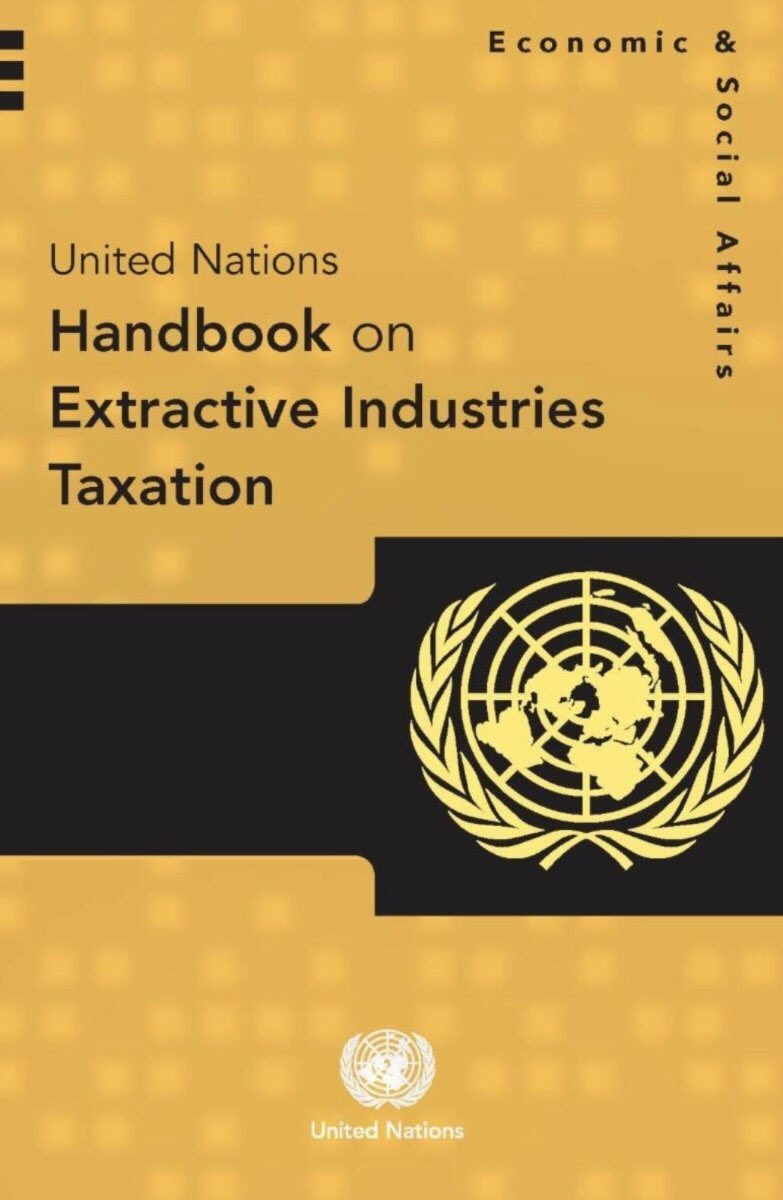
Three Reasons to Use the U.N.'s New Extractives Tax Guide
This week, the United Nations Tax Committee released a new handbook on the taxation of extractive industries. It’s a 300-page compromise, and had to be: a collaboration between a dedicated group of experts from academia, international institutions, private sector and nonprofits required some consensus.
I joined this group two years ago and, with Natural Resource Governance Institute (NRGI) colleagues, provided comments on several chapters of the handbook. Overall the handbook is a strong new tool, and I encourage everyone interested in the taxation of extractive industries to read it. (Of course the final product is a compromise between the views of the members of the subcommittee and so there are positions that we at NRGI may not fully endorse.)

Are you thrilled right now? I expect many technical staff in government institutions actually might be, especially because the handbook comes with a large number of examples and advice on how to effectively implement tax rules.
While the handbook’s chapters on fiscal instruments in the extractive sector, general good practice on contract negotiations and the main risks of transfer mispricing do not provide detailed guidance, they are useful introductions. They’re also endorsements of good practice by a multilateral institution. In several sections, the text underscores how important it is for governments to lead a consistent tax policy, to set fiscal terms in laws rather than contracts and to publish fiscal terms and contracts.
The committee’s presentation of the handbook as a living document is opportune, as it’s far from complete: policy-makers in resource-rich countries face (or will face) challenges that the guidance does not address. There are also topics on which the tax committee might take more progressive positions in the future: for example, citizens are increasingly less accepting of tax exemptions granted to companies in the sector, especially in light of the negative effects on the local environment and the global climate. Some countries are questioning the fairness or practicality of transfer pricing principles. And, who knows? A global consensus just may emerge to reform international corporate taxation and reverse a decades-long race to the bottom that has resulted in a global reduction in income tax rates.
Finally, as the U.N. tax committee was reshuffled last year, with 25 members appointed for a four-year term, some critical improvements are needed. Taxation is the lifeblood of almost every government in the world, the key to funding critical public investments and social services, and yet it receives very little budgetary or political support at the global level. The U.N. tax committee should rival the Organisation for Economic Co-operation and Development (OECD) in setting global norms in taxation, but it is consistently underfunded. Subcommittee members travel to global meetings on their own budget, which is especially problematic for members from developing country governments and civil society organizations. This handbook and other publications from the committee are good products, but there is so much more a global coordinating body on taxation could do to improve domestic revenue mobilization and equity around the world.
Thomas Lassourd is a senior economic analyst with the Natural Resource Governance Institute (NRGI).
